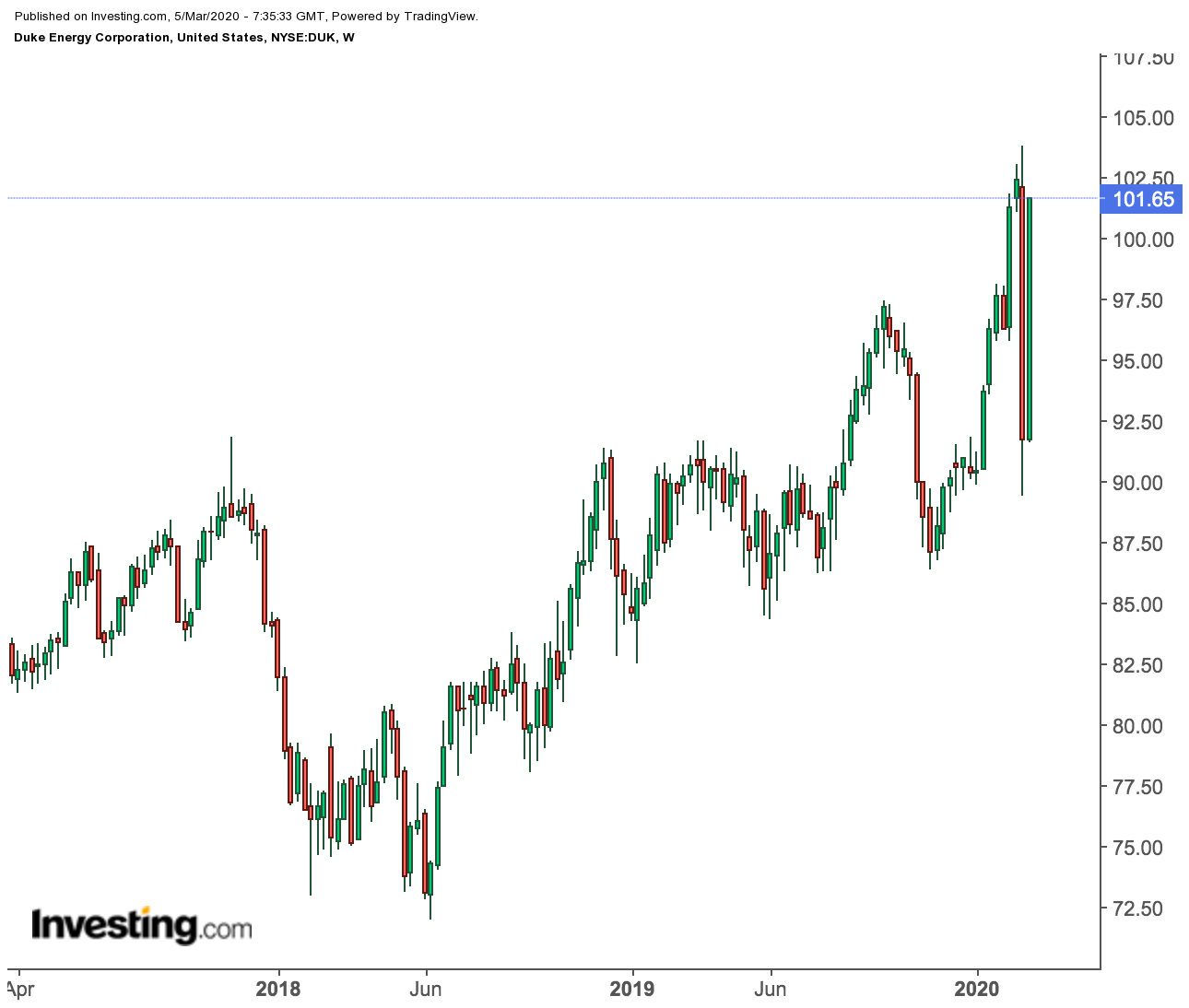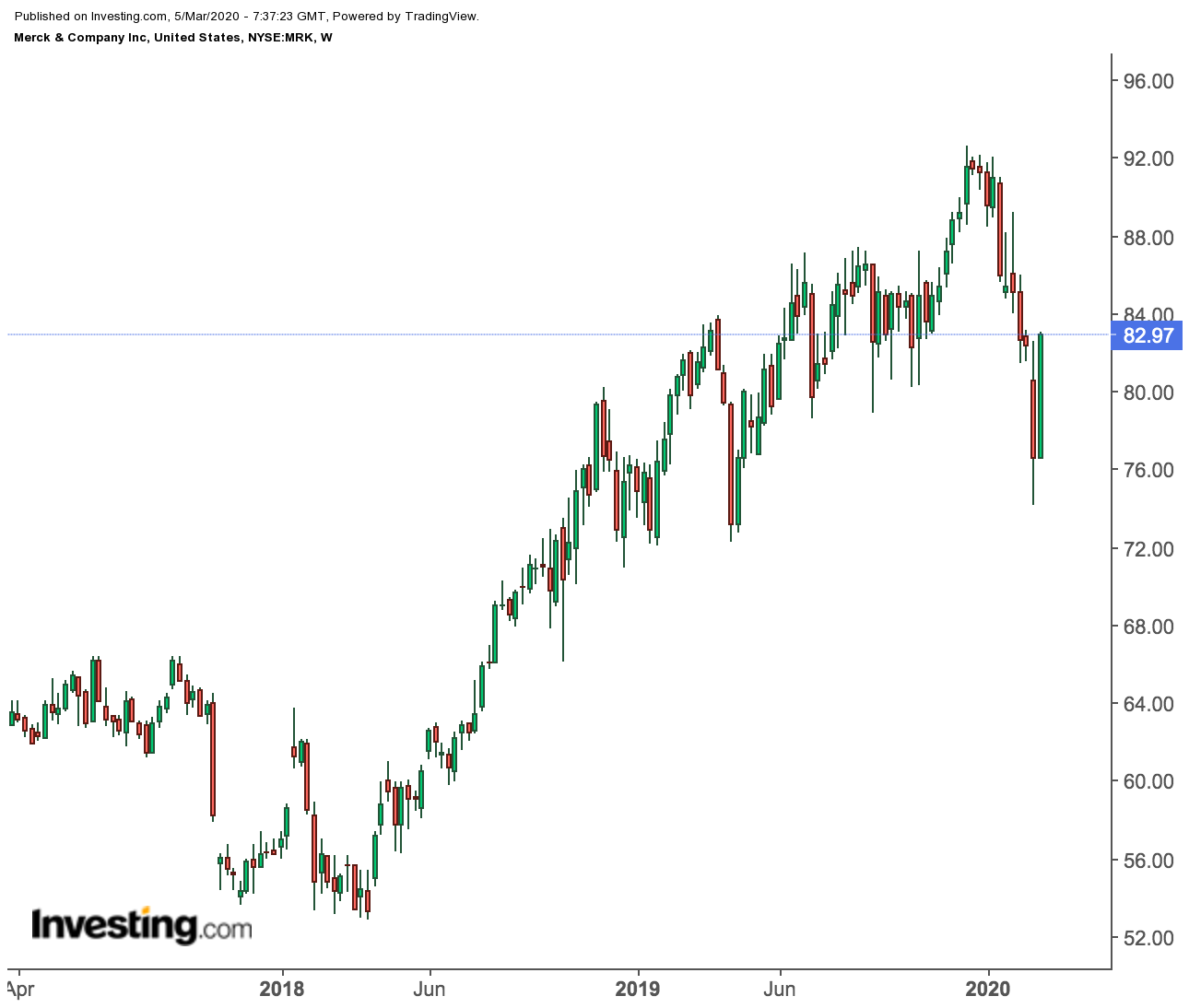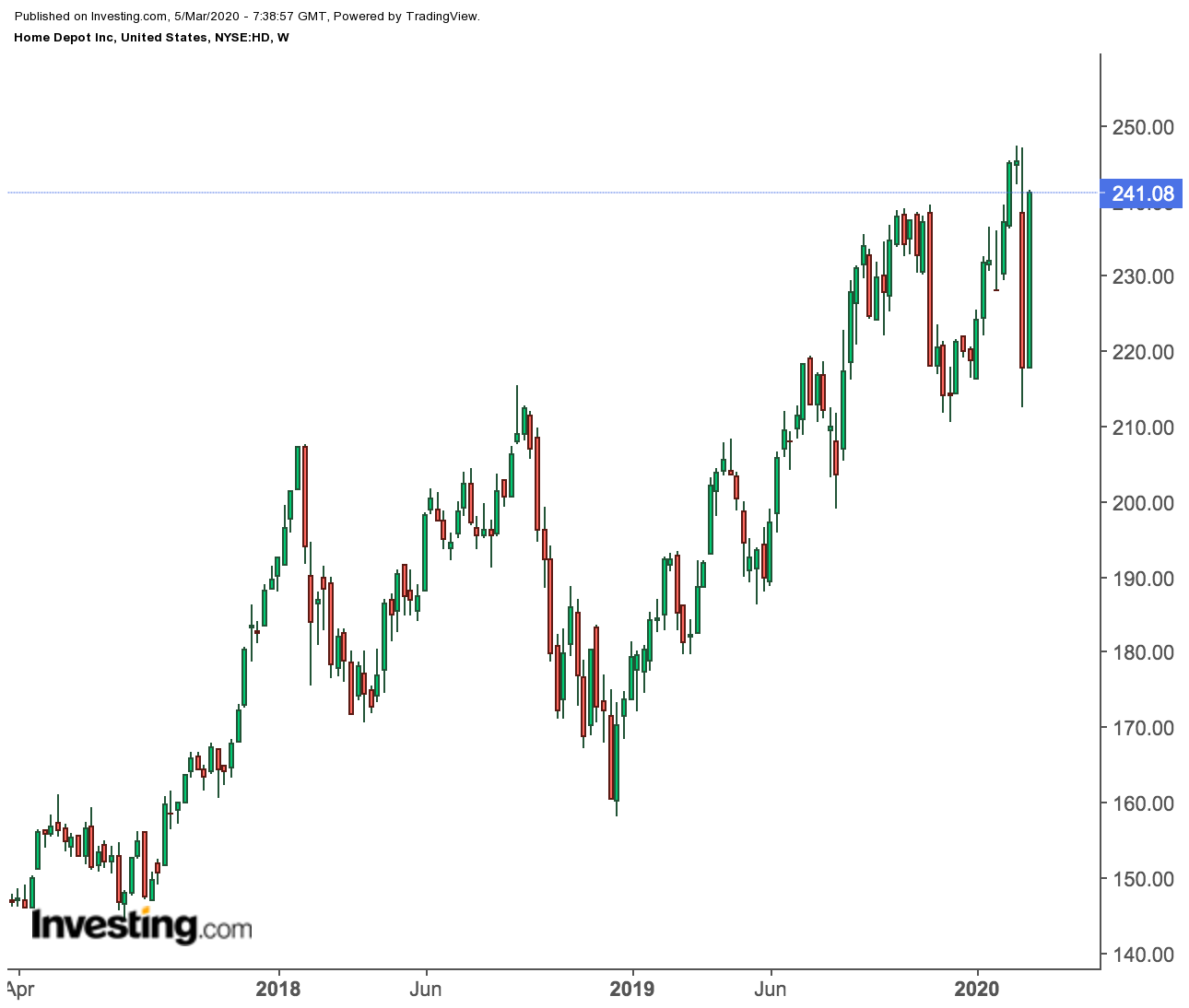After 10 days of indiscriminate coronavirus-driven selling, the investment environment has become challenging for long-term investors trying to work out which area of the market is safe and where to look for stable returns. But even in these uncertain, panic-fueled times, there is a silver lining — at least for those who were waiting for a stock market correction after its decade-long boom.
While it’s almost impossible for anyone to predict how much more downside there is before this virus-triggered pullback is over, plunging bond yields have made many dividend stocks much more appealing to income investors.
The yield on the benchmark 10-year U.S. Treasury note fell below 1% for the first time on Tuesday as investors rushed to buy safe-haven government bonds on fears of the coronavirus outbreak. While Treasury yields remain at this historically low level, investors can take refuge in some of the safest dividend stocks — which offer yields much higher than bonds.
Below, we have selected three such dividend stocks to consider to buy and hold over the long run.
1. Duke Energy
Utilities are generally more stable stocks, as consumers will continue to need gas and electricity even through the worst of economic contractions. That’s the reason investors rush into utilities in times of uncertainty: these companies offer higher dividends and reliable revenue generation.
In this space, we like Duke Energy (NYSE:DUK) due to its attractive dividend yield and diversified operations, which are well-positioned to produce steady cash flows.
The company has a $37 billion development plan to run until 2022 to support the company’s inflation-beating dividend growth. Through its diversified power, gas and storage businesses, Duke plans to deliver between 4% and 6% annual dividend growth to boost its current annual dividend of $3.78.
The stock was up more than 6% yesterday, to close at $101.65, as investors turned toward its appealing 4% yield — which translates into a quarterly payout of $0.945 a share. That kind of return will look even more desirable if we enter a persistently low-interest rate environment as indicated by the bond market.
2. Merck & Co.
Health-care stocks are considered reliable income producers. Just like retailers, utilities and garbage collectors, health providers offer services that remain necessary even in a recession, and economic swings don’t typically curb the roll-out of new drugs and devices.
Stocks like Merck & Co. (NYSE:MRK) are well positioned to not only beat the market in any downturn, but also provide good sustainable returns. The company is benefiting from the success of its top-selling cancer drug Keytruda. Analysts expect Keytruda sales to reach $20 billion a year by 2023, according to FactSet, generating more than a third of total company sales by that time.
Merck plans to invest $16 billion in new capital projects through 2022. With strong earnings momentum, a growing dividend and buybacks, we believe the company is a good long-term bet for those seeking growing payouts. The stock currently yields 3%, translating into a dividend of $0.61 a share quarterly which the drugmaker boosted by 11% last year.
The stock rose 4.9% yesterday to close at $82.97.
3. Home Depot
Home Depot (NYSE:HD) is one of those retailers that are best-positioned to continue sending dividend checks even when the U.S. falls into a recession. Falling bond yields and mortgage rates suggest the U.S. housing market will remain strong in the foreseeable future, encouraging people to spend more on refurbishing their homes.
Home Depot last week beat Wall Street’s earnings expectations for the fourth quarter, boosted by a strong holiday season and above average sales of appliances. The Atlanta-based home improvement retailer has been focused on integrating its brick-and-mortar stores and its online business. It’s in the middle of a three-year, $11 billion investment program.
Home Depot is a reliable dividend payer. Its quarterly dividend has expanded 380% over the past decade and, with a healthy payout ratio of 40%, it has much more room to grow. With an annual dividend yield of 2.61%, the company pays $2 a share quarterly payout. The shares have gained 30% in the past 12 months, closing yesterday up 5.8% at $241.08.
Bottom Line
A recession is undoubtedly a time when prudent investors seek to reduce their risks and avoid investing in stocks whose fate is closely tied with economic growth. But for long-term investors aiming to generate passive income, any market downturn could present opportunities to buy solid dividend-paying stocks. Utilities, healthcare and solid retail stocks are three defensive areas of the market that could offer this opportunity.
